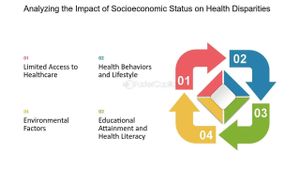The Tokyo Metropolitan Government is taking significant steps to support students pursuing overseas study, presenting new financial initiatives aimed at enhancing international educational experiences for residents. The latest proposal has eliminated income restrictions for applicants, making it easier for families to afford the costs associated with studying abroad.
According to the fiscal year 2025 budget proposal, the Tokyo government will allocate funds to assist students going overseas for their education. This move reflects the government’s commitment to finalizing programs promoting educational opportunities without economic constraints.
Many students who wish to gain international experiences through studying abroad may previously have faced financial barriers. With the introduction of this funding program, students can pursue their educational goals without worrying about their family income level, as emphasized by government officials.
This initiative can be seen as part of broader trends within the Tokyo education system, where governmental support has consistently aimed to offer comprehensive educational resources. Historically, the Tokyo Metropolitan Government has allocated substantial budgets for education. Specifically, the Minato Ward has gained attention for funding public middle school field trips to Singapore, illustrating its willingness to invest significantly in students’ educational experiences.
The decision to streamline funding without income restrictions signals the Tokyo government’s dedication to making overseas education accessible to all students, regardless of their financial background. The financial assistance will facilitate more families engaging their children’s educational endeavors internationally, promoting cultural exchange and global awareness.
This initiative appears to fall under the increasingly broader strategy to decentralize funding, which enables individual municipalities to control more of their educational budgets. Commenting on this trend, experts noted, “This is the result of decentralization,” indicating how local governments, like Tokyo’s, can take advantage of more autonomy to implement policies beneficial to residents.
Indeed, the realization of such programs also highlights inequalities across regions, where wealthier municipalities, such as Tokyo, can afford to offer extensive education funding. This disparity becomes particularly apparent when comparing the Tokyo education budget with other regions across Japan.
Addressing educators, the Tokyo government is also taking steps to improve recruitment conditions. Programs are being enacted to alleviate the burden of student loan repayments for teachers who work within the metropolitan schools, making teaching positions more attractive. According to the same sources, these measures create the most favorable employment conditions nationwide for teachers.
The initiatives are receiving attention amid concerns about teacher shortages across various levels of education. A concerted effort to stimulate recruitment through innovative funding mechanisms may provide the necessary boost to sustain educational quality throughout Tokyo.
Tokyo's progressive funding strategies not only signify attempts to help students but also reflect on the city’s ambition to maintain its status as a premier location for education. With the government pursuing various outreach programs and financial assistance scenarios, the chances are high for students to benefit from richer educational experiences.
The government's response can be viewed as savvy public relations, addressing concerns over excessive taxation and drawing attention away from critiques on tax burdens imposed on residents. While the high taxation allows for substantial funding, this initiative repackages the narrative surrounding fiscal responsibility and community development.
With attention fixed on these new initiatives, Tokyo Metropolitan Government's commitment and the financial measures introduced, the hope is to empower students to explore educational opportunities abroad, enriching their learning experiences. For the young residents of Tokyo, the horizon for education and overseas cultural exchanges looks brighter than ever as funding for overseas study takes center stage.
Overall, the new overseas study support initiative stands as part of Tokyo's proactive approach to education, serving not just to lighten financial loads but to boost the global aspirations of its students, ensuring they are equipped for the challenges of 21st-century citizenship.



